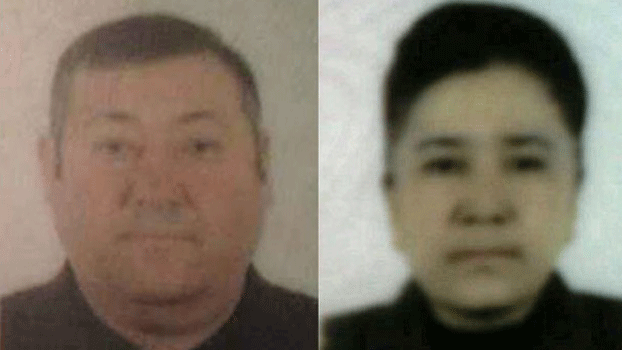Activist Shamsiye Hajibeg is the wife of Nurmemet Abdulmijit Turkistani, president of the East Turkestan Australian Association, a Uyghur advocacy group. It is believed that authorities in Xinjiang have placed dozens of members of Nurmemet’s family into camps, though little detailed information is known about their fate.
Over the past four years, Shamsiye, also a member of the advocacy group, has been unable to get information about 14 of her immediate relatives, including her parents Kamil Abaydulla and Aygul Haji; grandmother Tajinisa Haji; older brothers Zulfikar Kamil and Halmurat Kamil; younger brother Dilmurat Kamil; and her brothers’ wives.
Since early 2017, Chinese authorities have detained an estimated 1.8 million Uyghurs and other Muslim minorities in the Xinjiang Uyghur Autonomous Region (XUAR) in political reeducation camps under a program Beijing describes as vocational training to combat extremism.
The relatives of Uyghurs living abroad who are active in rights or advocacy groups are among those who have come under pressure from authorities or have been forced against their will into detention.
Like many other members of the Uyghur diaspora, Shamsiye had assumed that her parents and siblings were avoiding contact with her out of caution and did not seek them out lest she cause them trouble. But after her brothers and sisters-in-law stopped sharing posts to WeChat, she came to believe that they had been taken into some form of state detention.
By mid-2018, Shamsiye had lost complete contact with her 67-year-old father, Kamil Abaydulla, a former employee of the water bureau in Atush (in Chinese, Atushi), and her mother, Aygul Haji, a retired employee of the city’s Agricultural Bank of China.
They retired relatively early and ventured into international business in Central Asia for a period, followed by land development in Atush, Shamsiye said.
“I called again and again, and [my mother] picked up once,” Shamsiye said. “She said they were doing well. I asked her if she could, at the very least, call me so that I could hear her voice.”
But her mother told her not to call and to stop looking for her parents, then abruptly hung up, she said.
“And just like that, that was the last time I had a voice call with my mother,” the activist said, adding that whenever she tries to contact her parents by phone now, a message says that their phone number does not exist. When she calls her father’s cell phone, a message says that his mobile unit is powered off.
“I see my family as one that is being oppressed and persecuted, just as hundreds of thousands of Uyghur families in East Turkestan are,” she said, using the Uyghurs’ preferred name for Xinjiang.

